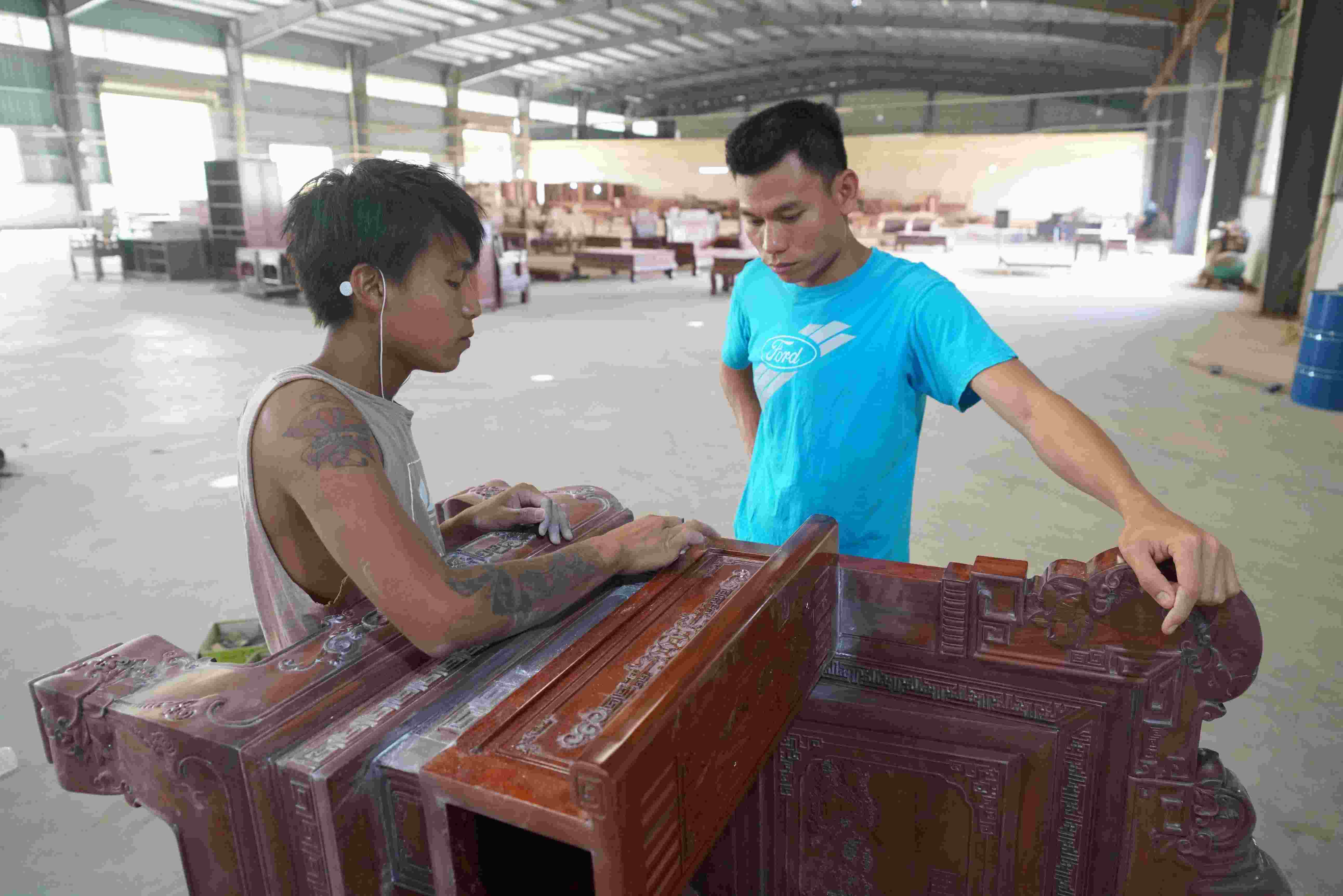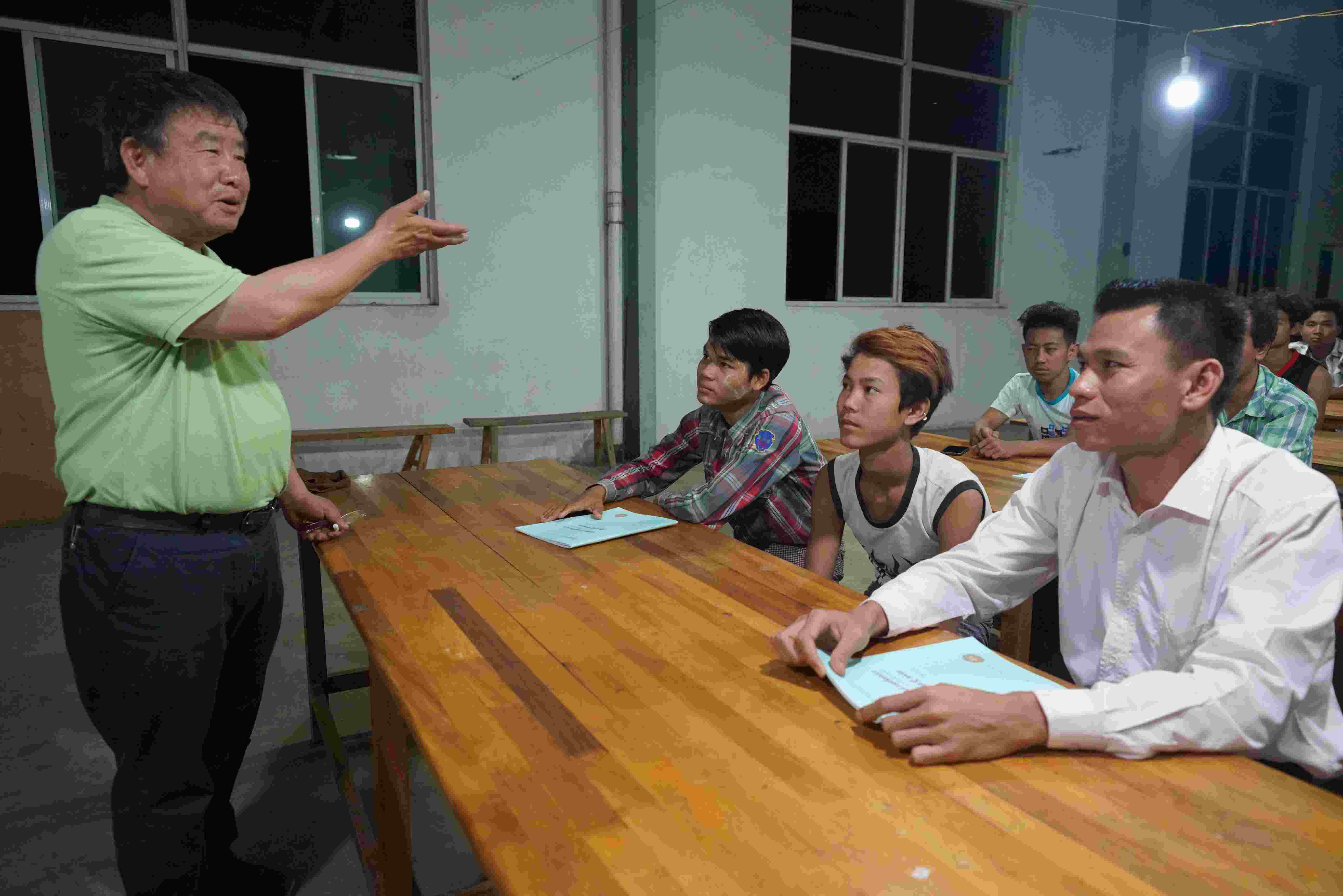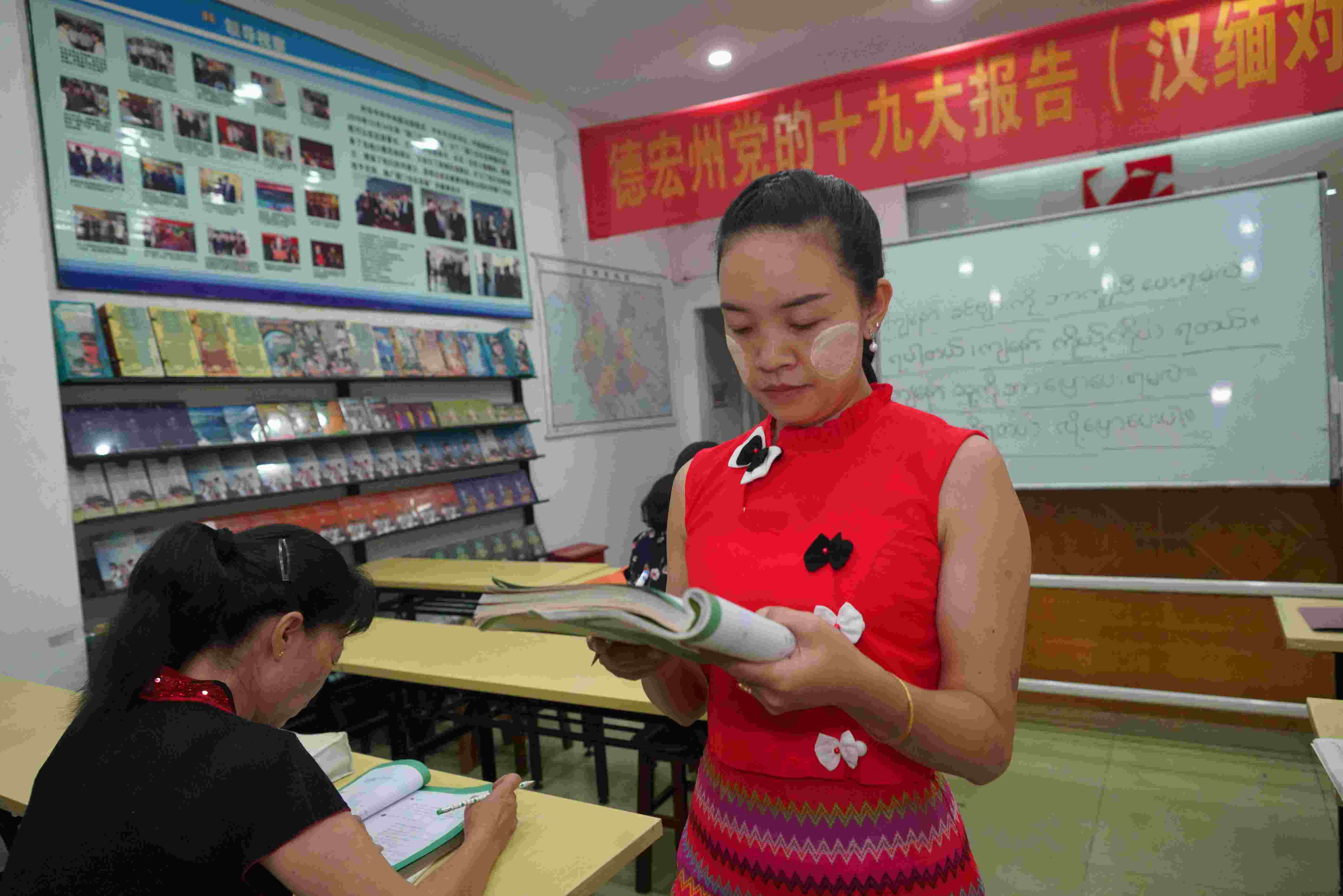
Asia Pacific
15:05, 24-Apr-2019
Free training brings people from China and Myanmar closer
Updated
11:50, 27-Apr-2019
Yang Jinghao, Luo Caiwen
03:08

For 38-year-old Nyein Chan, one of the large number of workers from Myanmar in the city of Ruili, each night is a challenge. They need to learn the Chinese language after a long day of work.
"It's very difficult, especially the writing, as the Chinese characters are completely different to the Myanmar ones," said Nyein Chan, who works in a redwood furniture factory.
The training, designated for Myanmar's workers in the city, is part of the China-ASEAN (Association of Southeast Asian Nations) Education and Training program undertaken by scores of universities across the country.
Located in southwest China's Yunnan Province, Ruili hosts at least 50,000 workers and businessmen from different areas of Myanmar.

Nyein Chan communicates with his coworker in a furniture factory in Ruili, which hosts more than 50,000 people from Myanmar. /CGTN Photo
Nyein Chan communicates with his coworker in a furniture factory in Ruili, which hosts more than 50,000 people from Myanmar. /CGTN Photo
"It's difficult for them to integrate into local society as they lack related skills and can't speak Chinese. So, we hope we can help them in this way. This also helps form friendship on grass-root levels," said Luo Hailing, a retired professor at Yunnan Minzu University who is in charge of the training program here and encountered some unexpected setbacks when the free training programs started in 2014.
"One problem is that most of the workers were unwilling to come, as their priority here is to earn money," said Luo. Then they decided to send night classes to different factories.
Over the past few years, they have trained more than 18,000 Myanmar's staff. Besides language, their courses also include information on Chinese laws and disease prevention, as well as occupational skills.
Nyein Chan told CGTN that he has benefited a lot from these courses.

Luo Hailing gives a Chinese language lesson to Myanmar workers. His training is part of the China-ASEAN Education and Training program. /CGTN Photo
Luo Hailing gives a Chinese language lesson to Myanmar workers. His training is part of the China-ASEAN Education and Training program. /CGTN Photo
"When I first came to China, I couldn't understand what my trainer said. That was very inconvenient. When I took a taxi or went shopping, there were also a lot of problems," he said.
Years on, he can now even communicate with others in Chinese via popular social networking platforms like WeChat. With his knowledge of the Chinese language, he now holds a higher position in the company and earns a lot more.
In fact, as the Belt and Road Initiative (BRI) moves forward, people-to-people exchanges between China and Myanmar are flourishing. More and more Chinese people also begin to learn the Myanmar language.
To meet the growing demand, the local government has launched a similar program at a culture center near the border. Here people from the two countries can learn each other's language for free every night.
Zhao Hongxian, who teaches both languages here, has witnessed the fast increase of the trainees.

Zhao Hongxian gives a Myanmar language lesson to Chinese trainees. She teaches both languages at a culture center near the China-Myanmar border. /CGTN Photo
Zhao Hongxian gives a Myanmar language lesson to Chinese trainees. She teaches both languages at a culture center near the China-Myanmar border. /CGTN Photo
"Most of the Chinese trainees are businesspeople who need to communicate with Myanmar people frequently or plan to seek opportunities in Myanmar," said Zhao, adding that her Myanmar "students" are mainly workers in the city, who can get better pay once they can speak some Chinese.
"Learning the language has been very helpful. When I went to Myanmar before, I needed to hire an interpreter, but now I often travel there on my own and can even negotiate the price with businessmen there directly," said Yang Shaowen who does jewelry business in Ruili.
He Mei rents houses to Myanmar businesspeople near the border, and she has persisted in learning the language for two years.

Myanmar workers in a furniture factory in the city of Ruili attend a Chinese language class. /CGTN Photo
Myanmar workers in a furniture factory in the city of Ruili attend a Chinese language class. /CGTN Photo
"Although I may have passed the age of learning new skills, I will try my best to improve. Every time I speak to my Myanmar clients in their language, they get happy and smile because they think we're closer."
Both Luo and local officials say they will carry on with their programs and provide more specialized training to improve business and cultural ties between the two nations.
"Education is a long-term cause," Luo said.

SITEMAP
Copyright © 2018 CGTN. Beijing ICP prepared NO.16065310-3
Copyright © 2018 CGTN. Beijing ICP prepared NO.16065310-3